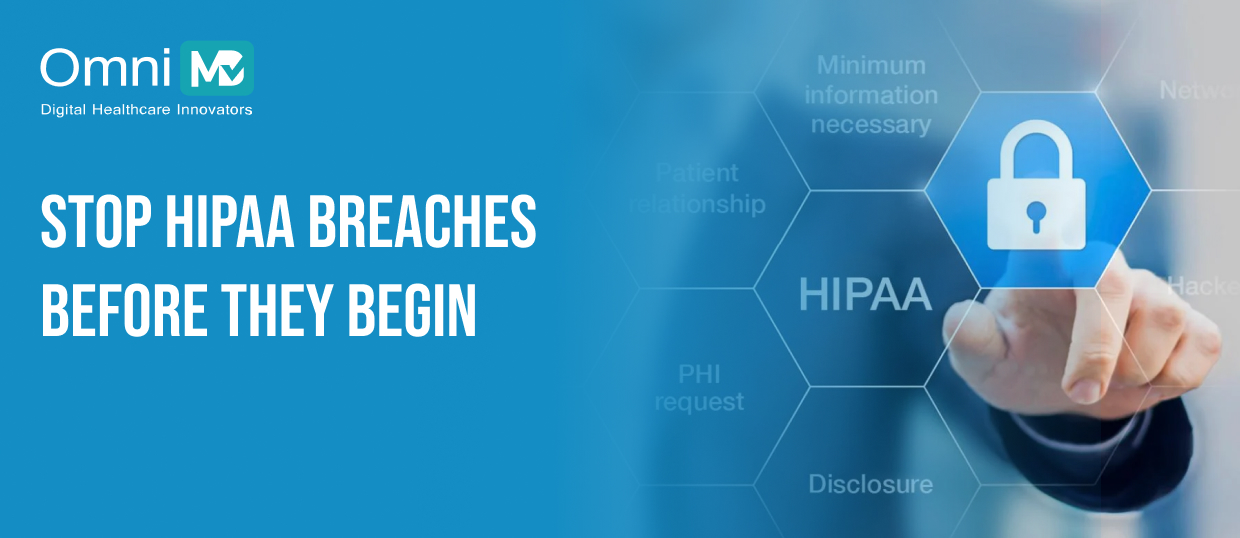Why HIPAA Breaches Often Start at the Front Desk, and How to Fix it.
For as long as medicine has existed, healthcare has served two masters who rarely shake hands:
speed and dignity.
Emergencies demand acceleration; dignity demands space.
One pulls us toward motion, the other toward stillness.
And the human nervous system, even at full strength, cannot stretch wide enough to honor both at every moment.
We like to pretend it can.
We even design systems around the fantasy that it will.
But reality shows itself most honestly at the first doorway of care, a place we rarely give the gravity it deserves:
the front desk.
It is the front line of vulnerability.
The triage of trust.
The intersection where fear, bureaucracy, compassion, and urgency arrive at once: unannounced, uncoordinated, unfiltered.
We call the people who stand there “receptionists,” as if they are simply greeting guests at a hotel.
But step close and listen:
- They are solving puzzles in real time.
- They are diplomats, translators, traffic controllers, comfort-givers, insurance navigators, schedule negotiators, data protectors, emotional shock absorbers, all while a waiting room hums with impatience and a phone echoes its next demand.
If healthcare had an orchestra, they would be conducting it without sheet music.
We expect them to be:
- quick like a trauma nurse,
- patient like a counselor,
- accurate like a pharmacist,
- discreet like a lawyer,
- and warm like family.
But no brain, no matter how dedicated, performs flawlessly under that constellation of contradictions for eight hours a day.
A Misdiagnosis of Accountability
In most conversations about healthcare front desks, just like above, we talk about stress, as if the weight itself is the flaw.
But stress is simply a warning light, not an engine failure.
The real problem is architectural. We built healthcare entry points on the belief that human endurance could substitute for system intelligence.
So instead of rethinking workflows, we kept stacking effort:
- More policies instead of better design
- More forms instead of frictionless flow
- More training instead of smarter systems
And then we placed human beings, not machines, not automated guardrails, but people, at the exact intersection where:
- Identity meets urgency
- Data meets emotion
- Compliance meets chaos
We call them front-desk staff, or first point of contact.
In truth, they are the first point of risk in a structure that still treats error as personal failure instead of environmental signal.
If a bridge collapses under normal traffic, we do not accuse the pedestrian.
We investigate the engineering.
Healthcare must grow into that level of maturity.
Front-desk mistakes are not a sign of weak staff.
They are symptoms of workflows built for another era.
The question is not,
“How do we get people to try harder?”
but
“How do we build environments where human empathy and system reliability work together instead of against each other?”
Because dignity in healthcare should not depend on stamina or memory.
It deserves infrastructure.
Where Breaches Happen: A Human-Pressure Map
Below is a reality map.
These are the pressure fissures where privacy, process, and attention crack even in good hands.
| Front-Desk Pressure Point | Real-World Breach Example | Why It Happens | System Fix |
| Identity confirmation in a busy line | Patient details spoken aloud at reception | Time pressure + social proximity | Private digital check-in & silent verification |
| Emotional requests / exceptions | “Can you just tell me if they’re checked in?” | Sympathy competes with protocol | Automated identity gatekeeping |
| Form overload | Wrong form, missing consent, misfiled PHI | Cognitive load fatigue | Smart form routing + auto-validation |
| Phone + in-person overload | Caller overhears patient info, or vice-versa | Task-switching burnout | AI call handling + queue split |
| Manual insurance verification | Screens left visible, papers left open | Multi-step manual processes | Auto-verification + screen guardrails |
| Familiar faces / repeat patients | Info shared casually out of rapport | Psychological shortcuts | Policy enforcement + quiet identity checks |
| Distracted moments | Incorrect patient record pulled | Attention depletion | System prompts + error-prevention AI |
These are not moral lapses.
They are predictable human moments inside unpredictable environments.
How does AI Front Desk Fix This?
Now, when we talk about AI at the front desk, the conversation often jumps to automation and speed. But that’s not the real value. In modern healthcare environments, AI’s purpose is not to replace staff, it’s to support them.
Front-desk teams handle high-stakes decisions under pressure: identity verification, insurance questions, scheduling urgency, emotional situations, and privacy-sensitive conversations. These moments don’t just require kindness, they require accuracy and focus. And focus is the first thing that fatigues in busy environments.
AI helps by handling repetitive, high-precision tasks so humans can stay present, calm, and empathetic with patients. It can:
- Verify patient identity quietly and securely
- Flag unusual or potentially risky requests
- Manage routine questions and form guidance
- Reduce manual data entry and insurance checks
- Notice stress patterns and offer assistance
- Enforce privacy rules consistently
AI won’t get flustered when phones ring and lines build. It won’t make emotional exceptions or forget a step at the end of a long day. That steadiness gives front-desk teams room to do what they do best: greet patients, offer comfort, and maintain trust.
AI brings reliability.
People bring compassion.
Modern care needs both, working side-by-side.
What That Looks Like in Practice
Without AI
A front-desk staff member must:
- Confirm patient identity verbally
- Collect and verify insurance information manually
- Handle walk-ins and calls simultaneously
- Protect privacy in a public space
- Remember compliance steps for every situation
- Stay calm, patient, and empathetic
With AI support
AI becomes a quiet background system that ensures consistency and reduces strain:
| Task | AI Function | Human Value |
| Patient identity check | Secure digital verification | Staff greets patients calmly without rushing |
| Insurance process | Automatic insurance validation & routing | Staff avoids paperwork bottlenecks |
| Form intake | Smart form guidance & auto-completion | Patients get faster, clearer assistance |
| Inbound calls | AI call triage & dispatch | Staff focuses on in-person care |
| Privacy enforcement | System-driven safeguards | No risk of emotional exceptions |
| Workflow load | Stress detection + task support | Staff stays present & empathetic |
A simple vision
AI handles predictable tasks.
Humans handle unpredictable needs.
AI keeps the system steady.
People keep the experience human.
This is how hospitals, retail banks, airlines, and telehealth call centers already operate. Healthcare front desks should benefit from the same stability.

Automate HIPAA Compliance at the Front Desk
AI-enabled intake and call handling reduces exposure and protects patient data.

 Written by Divan Dave
Written by Divan Dave





